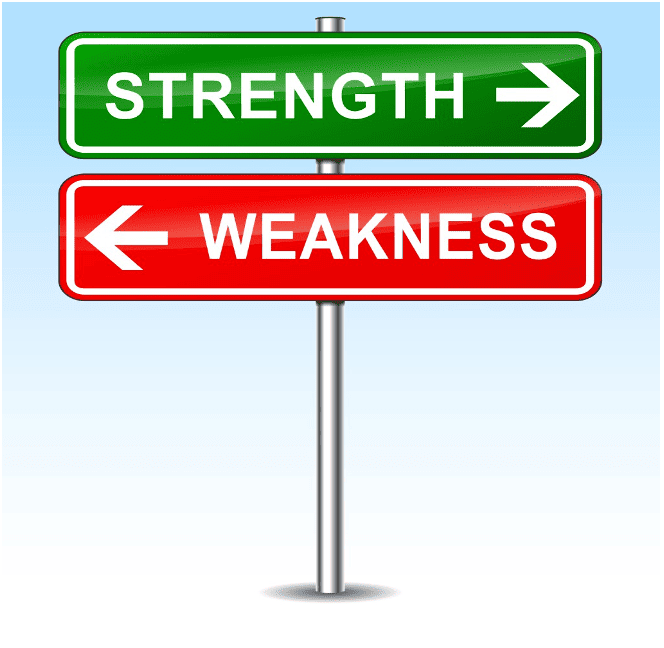Effective Calendar Management Tips & Tricks
Welcome to our guide on effective calendar management tips and tricks. Calendar management is a critical aspect of productivity and efficient time utilization. By managing your calendar effectively, you can prioritize tasks, optimize your schedule, and ensure effective communication. In this article, we will explore the importance of calendar management, how it benefits you, and provide valuable tips and strategies for optimizing your calendar.
Key Takeaways:
- Calendar management is essential for maximizing productivity and optimizing time allocation.
- Well-managed calendar management leads to accomplishing goals, efficiency in work, and improved communication.
- Prioritizing time, protecting focus time, and automating tasks are effective strategies for improving calendar management.
- Executive assistants play a crucial role in calendar management, freeing up time for executives to focus on core priorities.
- Utilizing digital calendars and scheduling apps can streamline calendar management and save time.
What is Calendar Management?
Calendar management is a crucial aspect of effective time management and scheduling. It involves a range of daily, weekly, and monthly tasks that help individuals optimize their time and achieve their goals.
One of the primary functions of calendar management is fielding meeting requests and scheduling meetings. By carefully organizing and allocating meeting times, individuals can ensure efficient communication and collaboration with colleagues and clients.
“Calendar management is the key to unlocking productivity and maximizing your time.”
In addition to meetings, calendar management also involves resolving scheduling conflicts. By carefully managing time slots and prioritizing tasks, individuals can avoid double-bookings and ensure a smooth and organized schedule.
Another important aspect of calendar management is managing time zones, especially for individuals working in a global or remote setting. By accounting for different time zones, individuals can schedule meetings and tasks effectively, ensuring efficient collaboration across borders.
Furthermore, calendar management includes scheduling tasks and deadlines. By inputting important tasks and deadlines into the calendar, individuals can stay organized, prioritize their work, and ensure that all deliverables are completed on time. This helps in maintaining a productive workflow and meeting goals efficiently.
Overall, the goal of calendar management is to best utilize time as a valuable resource. By implementing effective calendar management strategies, individuals can optimize their schedules, improve productivity, and achieve a better work-life balance.
How Improved Calendar Management Benefits You
Effective calendar management goes beyond just organizing your schedule. It has numerous benefits that can greatly enhance your productivity, efficiency, communication, and overall work-life balance. When your calendar is well-managed, you can experience significant improvements in various aspects of your professional and personal life.
Accomplishment of Goals
By effectively managing your calendar, you can prioritize tasks and allocate time dedicated to specific goals. This structured approach ensures that important objectives receive the necessary attention and contribute to your overall success.
Efficiency in Work
Proper calendar management allows you to optimize your time and resources. By avoiding scheduling conflicts and ensuring tasks are allocated appropriately, you can work more efficiently and make the most of your available work hours.
Conscientiousness Towards Others
When you manage your calendar effectively, you become more conscientious of others’ time and commitments. This leads to better collaboration and more considerate scheduling practices, fostering positive working relationships and teamwork.
Better Communication
Calendar management facilitates clear and effective communication with colleagues, clients, and stakeholders. By having a well-organized schedule, you can schedule meetings and appointments in a timely manner, respond promptly to inquiries, and ensure that everyone is on the same page.
Improved Record-Keeping
A well-managed calendar serves as a comprehensive record of your activities, meetings, and deadlines. It allows you to track your progress, refer back to past events, and maintain accurate documentation, which can be valuable for future reference or performance evaluations.
“Proper calendar management is the key to unlocking your full potential, enabling you to accomplish your goals, work efficiently, communicate effectively, and maintain a balanced and fulfilling professional and personal life.”
To help illustrate the impact of improved calendar management, let’s take a look at the following table:
| Calendar Management Practices | Benefits |
|---|---|
| Prioritizing tasks and goals | Elevated focus on important objectives |
| Efficient time allocation | Increased productivity and optimized work hours |
| Considerate scheduling practices | Better collaboration and positive working relationships |
| Timely and clear communication | Improved coordination and reduced misunderstandings |
| Comprehensive record-keeping | Enhanced organization, documentation, and accountability |
Based on the table above, it is evident that effective calendar management offers tangible benefits that can positively impact your professional and personal life. By implementing the right practices and utilizing calendar management tools, you can unlock your full potential and achieve greater success.
Tips for Improving Your Calendar Management
Effective calendar management is crucial for optimizing productivity and ensuring that your time is allocated efficiently. By implementing the following strategies, you can prioritize your time, protect your focus time, automate tasks, and conduct a lightweight calendar audit to enhance your calendar management skills.
- Prioritize time slots: Assign a level of importance to each task or commitment on your calendar. This allows you to allocate your time effectively and focus on completing high-priority items first.
- Protect focus time: Designate specific blocks of time on your calendar for concentrated work without interruptions or distractions. Communicate this dedicated focus time to your colleagues and set clear boundaries to maximize your productivity.
- Automate calendar management tasks: Utilize productivity tools and software that automate repetitive calendar management tasks. For example, you can employ scheduling apps to streamline meeting requests, send reminders, and synchronize your calendar across multiple devices.
- Conduct a lightweight calendar audit: Regularly assess your calendar to identify inefficiencies or time-wasting activities. Evaluate your recurring meetings and commitments to determine if they align with your goals and priorities. Make adjustments to ensure your calendar reflects your most important tasks and responsibilities.
By incorporating these tips into your calendar management routine, you can enhance your time management skills, reduce distractions, and increase your overall efficiency.
Enhance Your Productivity with Automation
“Automating calendar management tasks can save you valuable time and energy that can be better utilized for more important and strategic activities.” – Productivity expert, Amanda Smith
Automation plays a key role in enhancing productivity by eliminating manual, time-consuming tasks. By automating calendar management, you can streamline processes, minimize errors, and ensure that your scheduling remains efficient and up-to-date. Leverage the power of automation to:
- Automatically send meeting agendas and reminders to attendees.
- Synchronize your calendar with other applications, such as email and project management tools.
- Set recurring events and deadlines without manual input.
Automation not only saves time but also enables you to focus on more meaningful and impactful work. By leveraging technology to manage your calendar, you can achieve a better work-life balance and increase your productivity levels.
Example of Time Prioritization
Here’s an example of how you can prioritize your time using the Eisenhower Matrix:
| Important and Urgent | Important and Not Urgent | Not Important and Urgent | Not Important and Not Urgent |
|---|---|---|---|
| Deadline-driven tasks | Long-term planning | Interruptions, phone calls | Low-priority activities |
| Key client meetings | Professional development | Non-essential emails | Personal phone calls |
Using the Eisenhower Matrix, you can prioritize your calendar by focusing on important and urgent tasks first, allocating time to important but not urgent tasks, minimizing time spent on not important but urgent activities, and eliminating or delegating not important and not urgent tasks.
By incorporating these techniques and leveraging automation tools, you can take control of your calendar, optimize your time, and achieve greater productivity.
Calendar Management for Executive Assistants
Executive assistants play a crucial role in the effective management of calendars for busy professionals. Their expertise in coordinating travel plans, gatekeeping appointments, and prioritizing tasks is invaluable in maintaining a well-organized schedule. By efficiently managing calendars, executive assistants ensure that executives can focus on their core priorities and strategic decision-making, while also optimizing their time for high-impact activities.
One of the essential responsibilities of executive assistants is coordinating travel plans. This involves researching and organizing flights, accommodations, and transportation arrangements, ensuring smooth and hassle-free travel for executives. With their meticulous attention to detail, executive assistants minimize the chances of scheduling conflicts and help executives maximize their productivity during business trips.
Gatekeeping appointments is another crucial aspect of calendar management for executive assistants. They carefully screen and prioritize meeting requests, ensuring that executives only invest their time in meetings that align with their goals and priorities. By gatekeeping appointments, executive assistants protect their executives’ valuable time and help them stay focused on important tasks.
In addition to managing travel plans and gatekeeping appointments, executive assistants play a key role in maintaining an optimized schedule for high-impact activities. They strategically allocate time for critical tasks, ensuring that executives have dedicated slots to work on essential projects, make key decisions, and engage in meaningful collaborations. By curating a schedule that reflects the executives’ priorities, executive assistants foster efficiency, productivity, and overall success.
Delegating calendar management tasks to executive assistants allows executives to trust that their schedules are in capable hands. It gives them the peace of mind to concentrate on their core responsibilities, confident that their calendars are managed with precision and effectiveness.
With the support of executive assistants, professionals can leverage efficient calendar management to enhance their productivity, optimize their time, and make meaningful contributions to their organizations.
Calendar Management Tools and Practices
When it comes to effective calendar management, having the right tools and practices in place is essential. Digital calendars and scheduling apps can greatly assist in streamlining your schedule and maximizing your productivity. These tools offer a wide range of features that make managing your calendar a breeze.
Digital calendars provide the convenience of easy access to your schedule from any device or location. With just a few taps, you can view, edit, and manage your appointments, tasks, and events. They also offer the ability to set reminders and receive updates, ensuring that you never miss an important deadline or meeting.
Scheduling apps take calendar management a step further by automating various tasks and facilitating seamless collaboration. These apps allow you to easily schedule meetings, send invites, and manage attendee responses all in one place. They also provide features like time zone synchronization and integrated communication tools, making global collaboration a breeze.
“Digital calendars and scheduling apps offer a wide range of features that make managing your calendar a breeze.”
By utilizing these digital tools, you can save precious time and avoid the hassle of manual scheduling. They provide a centralized platform for efficient calendar management, allowing you to focus on your priorities and accomplish more in less time.
Whether you prefer the simplicity of a basic digital calendar or the advanced features of a comprehensive scheduling app, there are plenty of options to choose from. Some popular calendar management tools and apps include:
- Google Calendar – A versatile and widely used digital calendar platform offering seamless integration with other Google services.
- Microsoft Outlook – A robust email client and calendar tool that provides a comprehensive suite of productivity features.
- Apple Calendar – A user-friendly calendar app designed for Apple devices, offering seamless synchronization across Apple’s ecosystem.
- Asana – A project management tool that includes built-in calendar features for task scheduling and tracking.
These tools and apps provide a range of features to cater to your specific calendar management needs. Whether you’re an individual looking to streamline your personal schedule or a team seeking efficient collaboration, there’s a tool to suit your requirements.
With the right calendar management tools and practices in place, you can take control of your schedule and make the most of your time. Embrace digital calendars and scheduling apps to simplify your calendar management, boost your productivity, and achieve better work-life balance.
Why Calendar Management is Important
Effective calendar management is essential for optimizing time, maximizing productivity, and achieving overall success. By efficiently organizing and planning your schedule, calendar management ensures that tasks are prioritized and allocated appropriately. Let’s explore why calendar management plays a vital role in time optimization, organization, and productivity.
1. Time Optimization
Calendar management allows you to make the best use of your time. By strategically scheduling and prioritizing tasks, you can eliminate wasted time and focus on high-priority activities. Time optimization enables you to work efficiently, complete tasks within deadlines, and reach your goals effectively.
2. Organization and Planning
A well-managed calendar helps you stay organized and plan ahead. By keeping track of important dates, deadlines, and appointments, you can effectively allocate time for various activities. It allows you to stay proactive, anticipate potential conflicts, and make necessary adjustments to your schedule in advance.
3. Conflict Prevention
Calendar management helps prevent scheduling conflicts. By carefully planning and scheduling your activities, you can avoid double bookings or overlapping commitments. This ensures that you have undivided attention for each task, eliminates unnecessary stress, and fosters a more balanced work-life integration.
4. Productivity and Accountability
When you manage your calendar effectively, you set yourself up for increased productivity and enhanced accountability. By allocating specific time slots for different tasks and projects, you create a structured workflow that keeps you focused and motivated. Additionally, a well-organized calendar holds you accountable for accomplishing your goals within the designated time frames.
5. Time Tracking and Efficiency Improvement
Calendar management provides a record of your activities, allowing you to track and analyze your time usage. By reviewing your past schedules and identifying areas for improvement, you can optimize your workflow, eliminate time-wasting activities, and increase overall efficiency.
| Benefits of Calendar Management | |
|---|---|
| Optimizes time | Maximizes productivity |
| Helps with organization and planning | Prevents scheduling conflicts |
| Promotes accountability | Provides a record for time tracking and efficiency improvement |
12 Calendar Management Best Practices
Effective calendar management is crucial for optimizing productivity and effectively managing your time. By incorporating these 12 best practices into your calendar management routine, you can prioritize tasks, enhance efficiency, and maximize your output.
1. Set Precise Meeting Schedules
Creating specific time slots for meetings helps you allocate your time effectively and ensures that important discussions have dedicated focus.
2. Utilize Automated Meeting Setup Platforms
Streamline the process of scheduling and organizing meetings by using automated platforms that sync with your calendar and eliminate the back-and-forth of email exchanges.
3. Implement the Pomodoro Technique for Focused Work
Break your work into focused time blocks, known as Pomodoros, to boost productivity and maintain concentration on important tasks.
4. Dedicate Time for Planning
Allocate regular time in your calendar for strategic planning sessions, allowing you to review goals, prioritize tasks, and align your activities with your overall objectives.
5. Create Gaps for Meeting Transitions
To avoid back-to-back meetings and allow for breaks, allocate buffer time between meetings to recharge, review notes, and prepare for the next appointment.
6. Add Time Zones for Global Collaboration
If you collaborate with individuals across different time zones, it’s essential to include time zone conversions in your calendar to avoid scheduling conflicts and ensure seamless coordination.
7. Utilize Time-Blocking and Time Boxing Techniques
By assigning specific blocks of time for different types of tasks, you can maintain focus and improve efficiency, making the most of each dedicated time period.
8. Leverage Productivity Tools
Explore calendar management apps and software tools that offer productivity-enhancing features such as task management, reminders, and integrations with other productivity platforms.
9. Prioritize Tasks Based on Importance and Urgency
Assign priorities to tasks based on their importance and urgency. This enables you to focus on high-priority activities and allocate the appropriate amount of time and resources.
10. Embrace Collaboration Platforms
Utilize collaboration tools that integrate with your calendar to simplify communication, streamline project management, and enhance team coordination.
11. Regularly Review and Update Your Calendar
Take time to review your calendar regularly to ensure it accurately reflects your commitments, allows room for adjustments, and aligns with your current priorities.
12. Use Color-Coding and Labels
Assign colors and labels to different types of appointments and tasks to visually categorize and organize your calendar, providing a quick overview of your schedule at a glance.
By incorporating these best practices into your calendar management routine, you can enhance your productivity, prioritize effectively, and make the most of your valuable time.
Achieving Work-Life Balance with Calendar Management
Work-life balance is essential for maintaining overall well-being and ensuring effectiveness in both personal and professional spheres. Calendar management plays a crucial role in achieving this balance by helping individuals prioritize their time and allocate it effectively. By implementing the following strategies, you can harmonize your work and personal life, leading to increased productivity, reduced stress, and enhanced mental well-being.
Reflect on Previous Week’s Deliverables
Take a few moments at the end of each week to reflect on your accomplishments. Review the tasks you have completed and the progress made towards your goals. This reflection will not only provide a sense of satisfaction but also serve as a guide for the upcoming week.
Prioritize Personal Time and Relaxation
It’s easy to get caught up in work obligations and neglect personal time for self-care and relaxation. Block off dedicated periods in your calendar for activities that recharge you, such as exercise, hobbies, spending time with loved ones, or simply enjoying solitude. Prioritizing personal time will help maintain a healthy work-life balance and prevent burnout.
Consider Travel Schedules
If you have travel plans, whether for work or leisure, ensure your calendar reflects these commitments. Account for travel time, preparation, and transition periods to avoid overbooking your schedule. This foresight will help you manage your time effectively and reduce the stress associated with conflicting commitments.
Determine Peak Productivity Times
Everyone has certain times of the day when their productivity is at its peak. Identify these periods and allocate them for focused, important tasks that require your full attention. By aligning your schedule with your energy levels, you can optimize your output and accomplish more in less time.
Achieve a Balance Between Personal and Professional Calendars
Maintaining separate calendars for personal and professional commitments can aid in achieving work-life balance. Clearly define boundaries for each domain and ensure that one doesn’t encroach on the other. This separation allows you to prioritize and dedicate time to both aspects of your life, fostering a sense of fulfillment and harmony.
By effectively managing your calendar, you can cultivate a work-life balance that enables you to thrive both personally and professionally.
Conclusion
Effective calendar management plays a crucial role in maximizing productivity, achieving work-life balance, and optimizing time allocation. By implementing best practices, prioritizing tasks, and utilizing calendar management tools effectively, individuals can streamline their schedules, reduce stress, and achieve their goals.
Calendar management is more than just scheduling meetings and appointments. It is a strategic approach to organizing and utilizing time as a valuable resource. By embracing effective calendar management techniques, individuals can prioritize tasks, automate processes, and maintain good relationships with colleagues.
In today’s fast-paced world, where time is of the essence, efficient calendar management is key to staying productive and on top of responsibilities. It helps individuals allocate time effectively, reduce distractions, and automate repetitive tasks. With a well-managed calendar, individuals can optimize their time, accomplish their goals, and maintain a healthy work-life balance.
Take control of your schedule and unlock your full potential with effective calendar management. Prioritize your tasks, protect your focus time, and automate your calendar management tasks. By doing so, you can optimize your productivity, achieve your goals, and make the most out of every precious moment.






